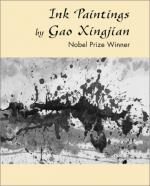|
This section contains 6,003 words (approx. 21 pages at 300 words per page) |

|
SOURCE: Haiping, Yan. “Theatrical Impulse and Posthumanism: Gao Xingjiang's ‘Another Kind of Dream.’” World Literature Today 75, no. 1 (winter 2001): 20-9.
In the following essay, Haiping discusses the theme of posthumanism and the individual in Gao's dramatic works.
Chinese drama since the late 1970s, like other forms of art and literature of the era, began as an emotionally charged negation of the Cultural Revolution (1966-76) and developed as a multi-dimensional reflection on the turbulent history of contemporary China, fueled by the rapidly unfolding and violently changing forces of what has been called “modernization.”1 Many emerging playwrights in the early 1980s, as spiritual children of the long tradition of Chinese literary ethics,2 viewed themselves as “speakers for the common folk” and “authors of social conscience and cultural change.”3 Connected with yet different from many of his contemporaries in this regard, Gao Xingjian appeared on the nation's cultural scene with a distinctive...
|
This section contains 6,003 words (approx. 21 pages at 300 words per page) |

|


